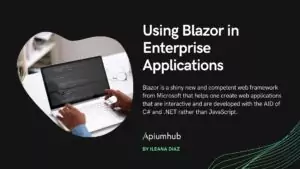Table of Contents
I’ve noticed that there’s a lack of knowledge about Hackathons, which I believe to be an amazing way of building new products and learning by doing. So to spread the word, I decided to write an article about it. You will get a deeper knowledge about what is a Hackathon (also known as a hackfest, a hack day or a codefest) and what are the benefits of Hackathons and I’ll finish with a few tips that will help you optimise your next Hackathon.
So what is a Hackathon?
Initially, the word Hackathon comes from the word Marathon (a long or difficult activity in a short period) and Hack, here meant as exploratory programming.
Well, during a Hackathon, you spend a short period of time, usually between 24-48h (can go up to a week), building, creating and delivering a product. The idea is to collaboratively code in an extreme manner, to start from scratch and end with a working prototype. It’s often a sort of competition, where teams of programmers, developers, designers and project managers come together to design & build a nice product, a software project.
Originally, it started in the open source community and today is very common among programmers. You can find all sorts of Hackathons, some are mainly intended for educational matters, other for social, and others are basically to create a software. Very often, businesses use it as a chance to get creative ideas by their employees, some sort of prototype that will be low cost at the end of the day.
During those events, people meetup to face different real life problems. You could find Hackathons that have a theme assigned and you have other ones where there are no themes and you therefore pitch ideas and build on that. It’s a great opportunity to put together a large number of people to address all together a same problem and watch how ideas and results flow.
What is the structure of a Hackathon?
It usually all starts with an introduction about the event (about the topic if there is one) and then comes a kickoff where the participants will pitch product ideas and form teams based on interests and specific skills.
As mentioned earlier, a Hackathon can be of 24h but can go up to a week. So of course for shorter Hackathons, there is more pressure. Adding to that competition, you can quickly remember the exams periods at university. Work, work, work, drink coffee, have a quick bite, drink some redbull, sleep very few hours, work more, etc. At least that’s what my exams period looked like!
After the work being done, teams will show their product to others. It’s not always the case, but quite often, you will have a jury that will be looking at the demos of products and will be in charge of choosing a winner team that will get a prize.
Still not 100% convincend that you should participate in a Hackathon? Well wait till you read about the benefits.
What are the benefits of Hackathons?
-
Meet new people
It’s a great opportunity to get to know others that have the same interests as you and that care about the same technologies. Basically it’s a place where you get the chance to work and collaborate on projects with like minded people. I won’t go over the benefits of making new connections and networking, but a Hackathon is definitely the right place for that.
-
Team Collaboration
You are put in a situation where you work intensely with those new people you meet, for many consecutive hours in a short period of time, making it all quite intense. Everyone is working towards the same goal. You very often create strong bonds, learn from other’s strengths and learn how to work with a team that you don’t already know and with who you’ve never worked before, where high communication skills will be key.
-
Add value to your CV
This is a great add up to your CV: you will be getting some real tech experience and you can win prizes. People in the field know that during a Hackathon you increase your knowledge and gain team work experience. It Shows a lot about your personality, a proof that you are a person that takes initiative, seeking to have a deeper knowledge and that enjoys challenges.
-
Innovation
Problem solving environments encourage the development of new ideas. You work with people that come from different fields, with different ideas and interest, all working together to solve the same problem, each one adding his own input. The fact that we are restricted with time increases adrenaline and makes it much more productive.
-
Employer branding
If you host the event in your offices, people with talent in the industry will get to know your company and will meet your employees, making it possible for them to see how your team works and the skills they have.
-
Recruiting & finding talent
During the project, in a way, you can see it as if you were testing candidates and identifying new talent for your teams. Do you see any cultural fit? Something you don’t always get to see during an job interview. Here, you can really see how people work in action, how they manage a situation, how fast they are, how productive, etc. So yes, let’s just say that it’s a very efficient way to find talent.
-
Creating a new product
The main idea is to solve a problem by building a product. So you end up with a prototype of what could be your next product! And if not, you at least no what worked out and what didn’t.
-
Personal satisfaction
You’re having fun building new things and the feeling is quite rewarding. You gain the respect of others for the job that is done and you participate in the advancement of technology.
A few tips for a good Hackathon
-
The pitch is so important!
A lot of people think that this part is not that important. They’re wrong! You need to be able to sell your idea, fast. I mean again, it all depends of the reason why you’re in a Hachathon. If you’re here to win then you should definitely think about the pitch. If you’re only here to have fun and don’t really care about winning (which is also ok), then it’s another story.
The audience, your judges, will be expecting an amazing presentation with a person that is totally confident about his product. Be short & concise, repeat your idea, look at them in the eyes and go for it! Just be prepared.
-
Work with the best
Your team is part of your success. You should be strategic and work with people with different skills & different backgrounds, a bit of everything, different perspectives. If you’ve got a good idea, pitch it in the beginning of the Hackathon and explain who you are looking for and the project’s requirements so you can find the right people to work with.
-
It’s not enough to be “cool”
You can have the greatest product with amazing features, but if it’s not helping a situation then there is no interest for others to invest in it. Keep that in mind.
-
Come prepared
Another recommendation would be to do your research, read documents and understand the libraries & technologies you’re going to use. No need to loose that time during the Hackathon! You can also be prepared by having a template already done for your presentation, having a pillow, a blanket, a bottle of water and more!
-
Be realistic
Its obviously good to have big ideas, but it’s very important to be realistic with your expectations & objectives. In only 24-48 h, you can’t really believe that you will have the end product. So focus on value, focus in delivering a MVP. Don’t spend all your time planning something unrealistic and ending up delivering almost nothing!
By now, you should be convinced to try out a Hackathon. Or at least, you should understand why it can be really interesting for some.
If you enjoyed this, you might like…
How to become a software developer?









